Who was Hazrat Qasim and how was Martyr
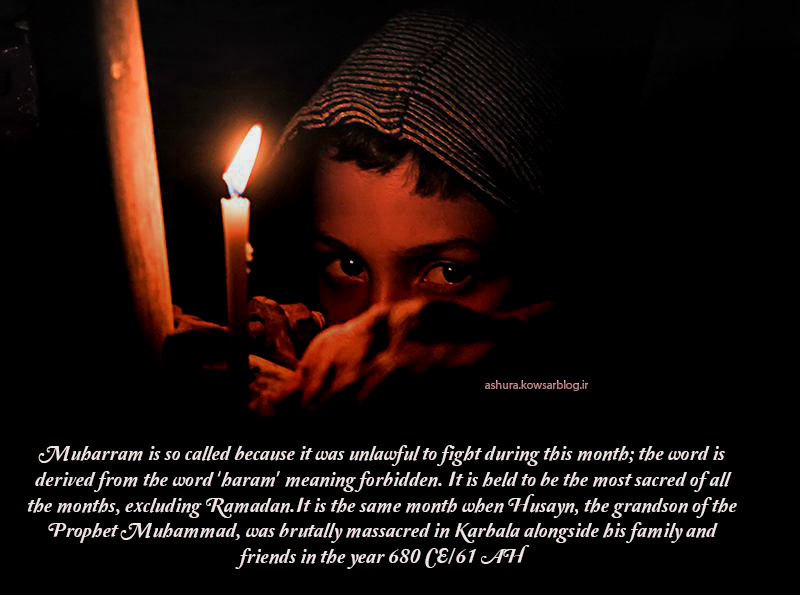
Our praise be upon Ghasem, the son of Hasan ibn Ali! The one that has been wounded and his military tools have been plundered! When he beckoned his uncle, Hossein, he hurried towards him just like a quick-winged eagle. He scattered people around him and got closer to him. When Hossein got to him, he was walking lamely (because of the wounds). Hossein said: “may God not have mercy on those who killed you! They are the same people that your father and grandfather would be hostile towards them in the Day of Judgment!” Then, he said: “I swear to God that it is so intolerable for your uncle to be beckoned by you and not answer you while you have been martyred or wounded.”
The Last Day, Ashura, Karbala
1. Asking for Permission to Enter the Battlefield
When all the companions were martyred, it was Imam Mojtaba’s son’s turn! Hazrat Ghasem talked to Imam Hossein and said: “O Uncle! I’ve come to ask your permission to go!”
2. The Uncle’s Rejection of the Plea
Imam Hossein said: “O my nephew! You are my brother’s memorabile! Stay! Don’t enter the battlefield! Your presence consolidates me!”
3. Imam Hassan Mojtaba’s Will
O my son! Whenever you saw your uncle in Karbala, don’t ever quit fighting the enemies of God and the Prophet! If your uncle didn’t let you to enter the battlefield, persist in your request!
4. The Uncle’s Permission
Hazrat Ghasem presented the will to Imam Hossein. When Imam saw the will, he hugged Ghasem to bid farewell to him.
5. Entering the Battlefield
Imam Hossein clothed Imam Mojtaba in his ghaba and then put Hassan’s turban on Ghasem’s head and sent him to the battlefield.
Hazrat Ghasem’s Biography
Imam Hussein in the words of Imam Khamenei
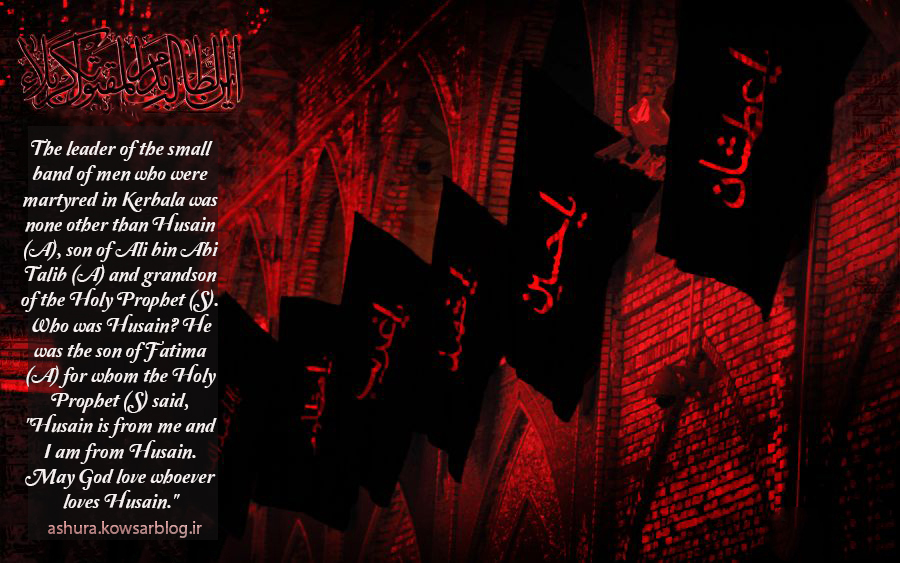
“You cannot know Imam Hussein (Peace Be upon Him) just through Ashura Day; because that day was only a part of his mission. You have to know him through his endless knowledge about different religious issues such as dos and don’ts which recorded in many books. Next to his endless knowledge, you can know him through his Jihad in Karbala on Ashura Day.”
(26th July 2009)
Almsgiving Imam Hussein
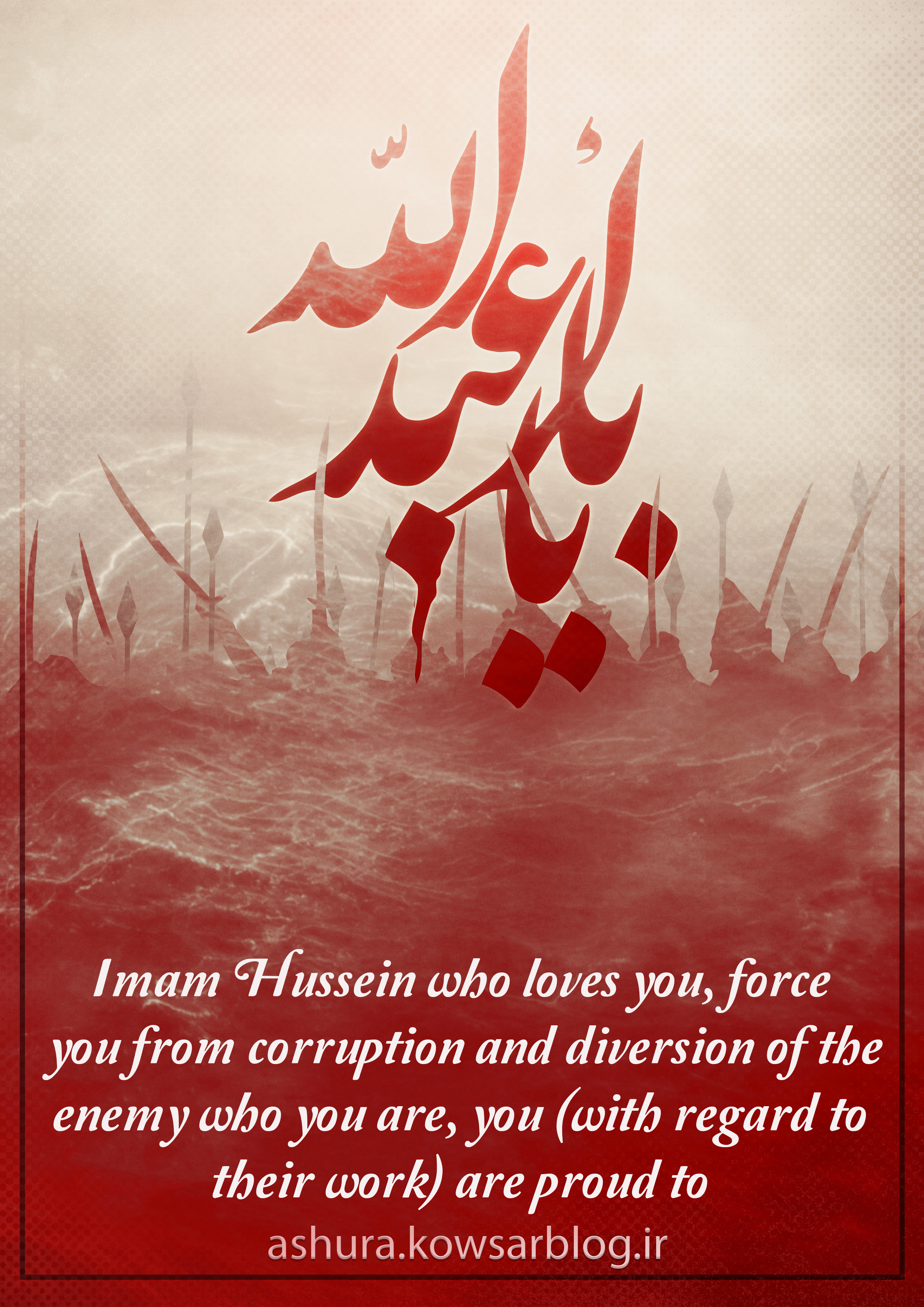
Almsgiving
Imam Hussain (a.s.) went to visit Usamat Ibn Ziyad who was sick and told Imam Hussain (a.s.), “Woe! I am sad!” Imam Hussain (a.s.) told him, “Why are you sad my brother?” Usamah said, “O son of Messenger of Allah (S)! I am in debt to the tune of sixty thousand dirhams. I am fearful of dying with this debt.” Imam Hussain (a.s.) said, “Do not be sad! I will pay your debt before your demise.” And he did so.
Shu’ayb Ibn Abdur Rahman says, “After Imam Hussain (a.s.) was martyred, a mark was seen on his holy shoulder. Imam Sajjad (a.s.) was asked, ‘What is this sign?’ Imam (a.s.) answered, ‘This mark is for the sac of food my father used to carry on his shoulder to feed the poor, the orphan, and the widowed.’”
It is narrated from Imam Hussain (a.s.), “This speech of Prophet Muhammad (S) that ‘The best deed after Salat (prayer) is joyfulness of the believer’s heart, provided it does not include committing a sin,’ is proved for me. One day I saw a slave who was eating along with a dog. He ate a mouthful then threw a piece for the dog. I asked him the reason. The slave answered, ‘O son of Messenger of Allah! I am very sad. I try to make this dog happy so that Allah will delight me. My master is a Jew from who I want to separate.’
Imam Hussain (a.s.) went to the slave’s master and paid two hundred dirhams to buy the slave. The Jewish man said, ‘I grant this slave to you. I grant a farm to him and pay you back your money.’ Imam Hussain (a.s.) said, ‘I accept your granting, grant all of it to the slave and free him.’ The Jewish man’s wife who witnessed all these events said, ‘I embrace Islam and forgive my dowry to my husband.’ The Jewish man said, ‘I embrace Islam too and grant my house to my wife.’”
Similar uprising of Imam Hussein, the Prophet
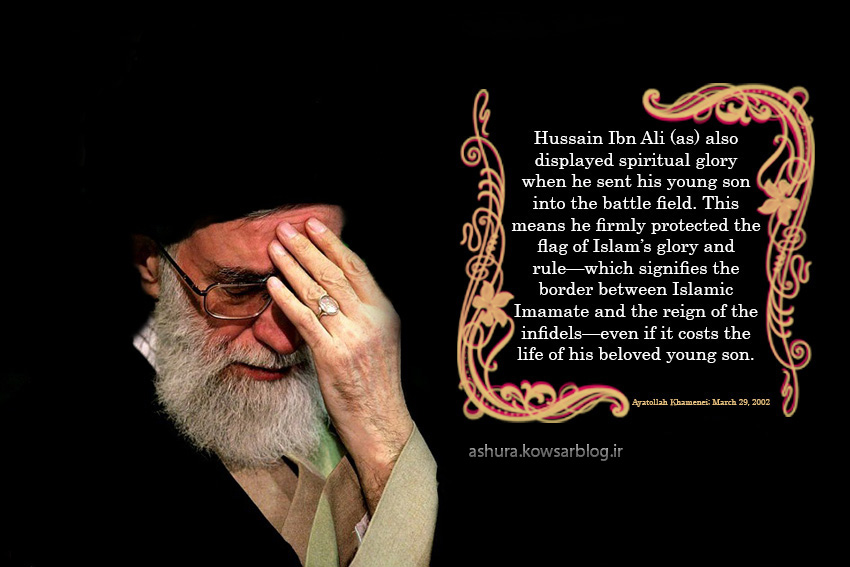
“Imam Hussein’s (Peace Be upon Him) Uprising in Karbala is comparable with the Prophet’s (Peace Be upon Him) Prophetic Mission. As the Prophet (Peace Be upon Him) encountered opposition from a lot of people, Imam Hussein (Peace Be upon Him) encountered the same situation in Karbala.”
(14 December 1996)
Abdullah ibn al-Hassan's Story
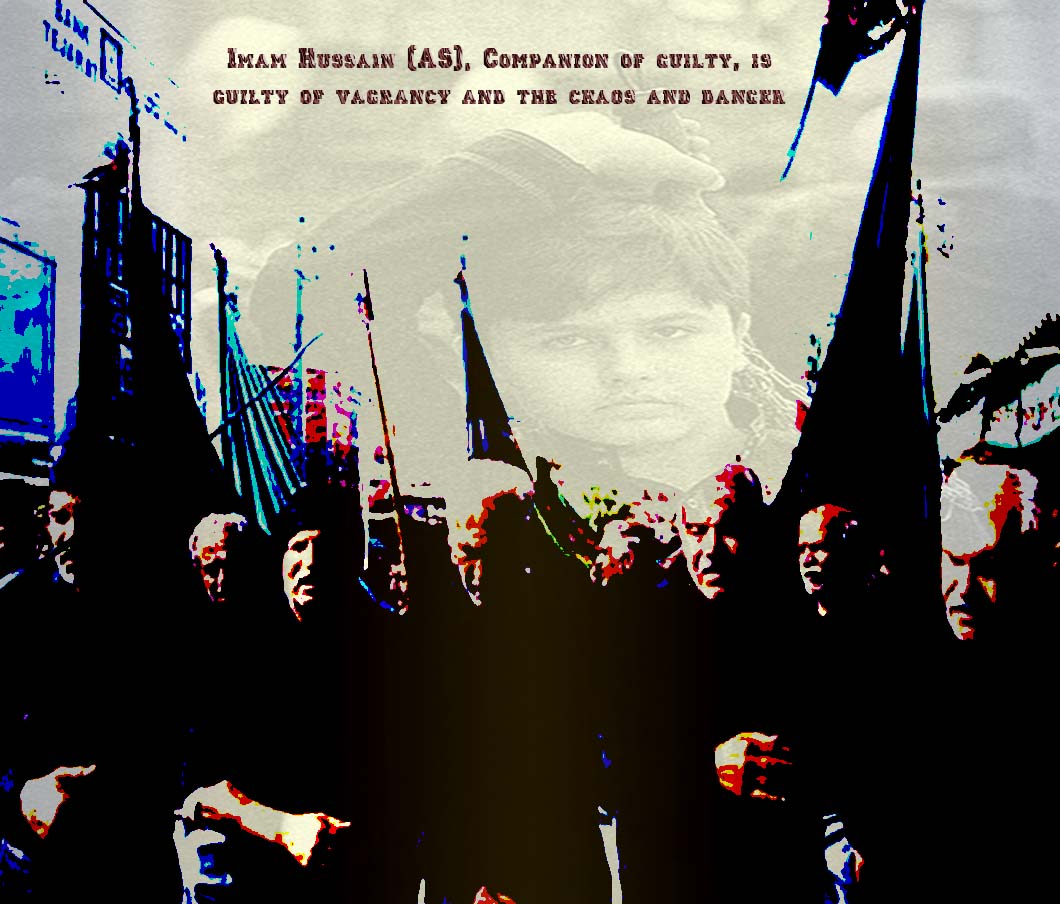
Abdullah ibn al-Hassan’s Story
Imam told Abdullah that was suffering a severe pain because of her hand being cut:
“O my brother’s son! Wait! God will join you with your faithful and pure fathers, the
Prophet, Ali, Hamze, Jafar, and Hassan. “
If my fate delayed me and prevented me from helping you, if I wasn’t there to fight
with your enemies as your companion, I cry for you every day and night, I lament
your loss so bitterly till I die for the grief of the hardships you underwent.
Imam’s prayer after the martyrdom of Abdullah ibn al-Hassan: “O God! Withhold the
drops of rain from these people and deny them the blessings of your earth! O God! If
you give them a grace period to live, divide them into separate ununified groups.”
Tatbir (Self-Flagellation) is a fabricated and anti-Islamic tradition
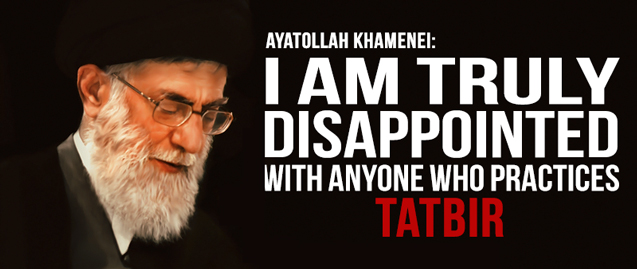
Self-flagellation is forbidden (Haram) in Islam. Some great scholars such as Grand Ayatullah Khamenei who is the leader of Islamic Republic of Iran have prohibited any self-mutilation such as self-flagellation with knives or chains and even walking on fire
“Practicing Tatbir (i.e.self-flagellation) is one of the wrongdoings. I know that some people would say: “It was better for him not to mention Tatbir.” They would say: “Why do you bother with Tatbir? Some people do it, let them do!”. No! it’s not right to remain silent toward such a wrong action…
It is wrong that some people hold daggers and hit themselves on the head to bleed. What are they seeking?! How can this be an act of mourning?! Of course hitting on the head with one’s hands is a sign of mourning. You have seen it several times that when people face suffering, they hit on their chests and heads. This is a typical symbol of mourning. But where have you ever seen a person who is suffering from the loss of a dear one, hit on their head with a dagger and make it bleed?! How can this be an act of mourning?
Tatbir is a fabricated tradition. It is among the issues that does not belong to the religion and undoubtedly God is not also pleased with such a practice.
The more I thought about it, the more truly I realized I cannot overlook informing our dear people about Tatbir which is certainly an act of wrongdoing and a heresy. Do not practice it! I do not approve of it. If someone does something to pretend that they want to
practice Tatbir, I will be truly dissatisfied with them. I am declaring this solemnly.
Ashura is a movement
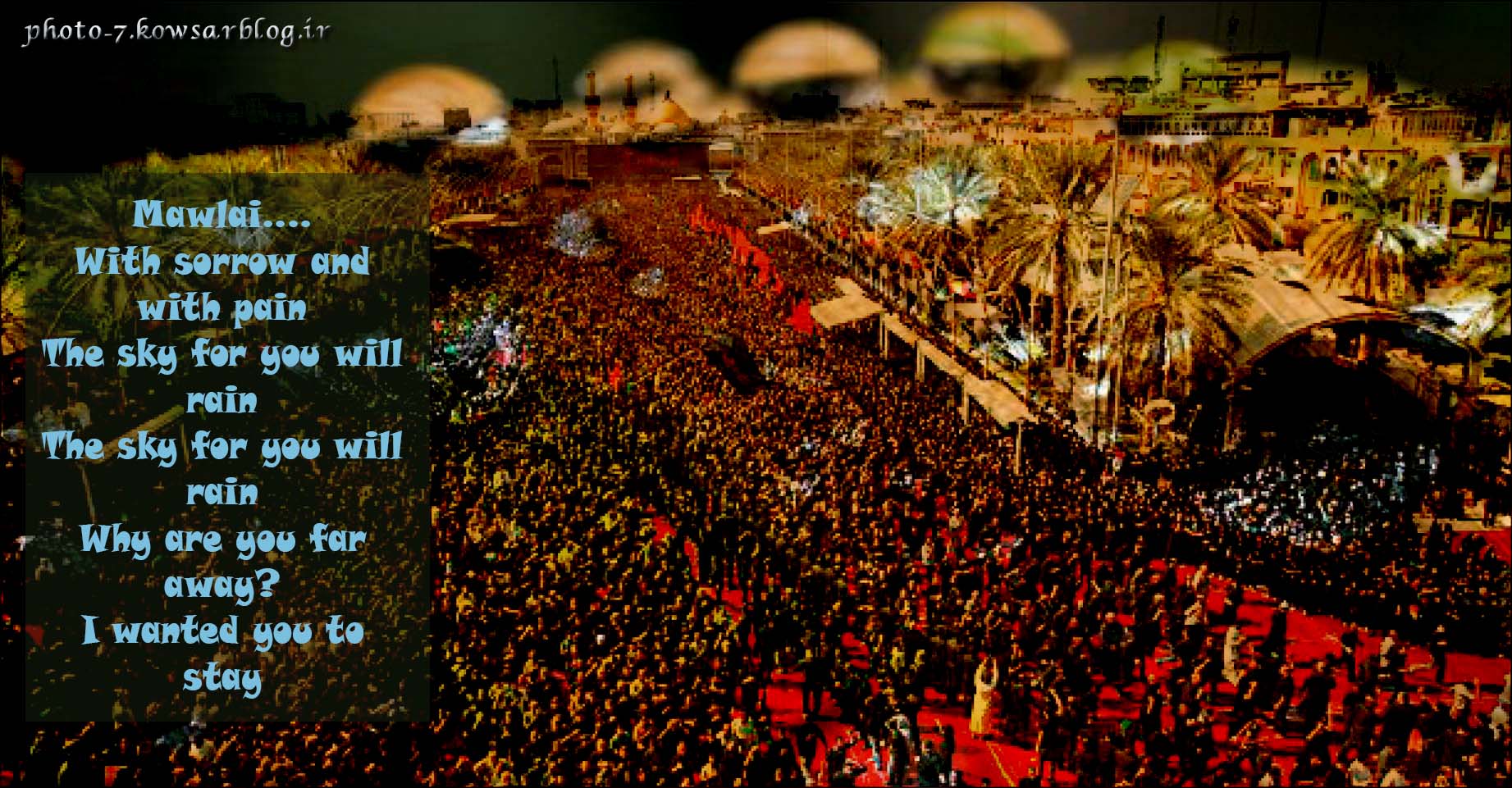
Ashura is a movement. It is an example that should be followed by all human beings whose conscience have awakened. Imam Hussein (a.s) set out on this path against tyranny, injustice, oppression, and material lusts; and countered evil by completely submitting to his Creator, the One and Only Allah (s.w). It’s the standard to measure one’s LOVE for and FAITH in Allah (s.w.t).